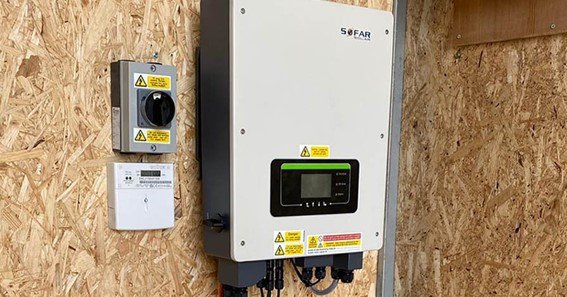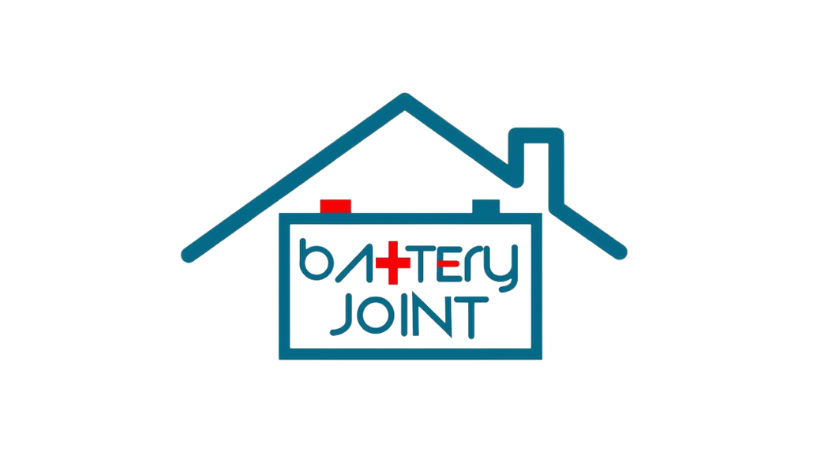
When it comes to ensuring that your home or business has a reliable and efficient power supply, the choice of inverter technology you buy can make all the difference.
Oftentimes customers are faced with the challenge of selecting the right inverter, one that not only meets their energy needs but also aligns with their budget and the demands of their electrical appliances.
The debate between opting for a pure sine wave inverter or a hybrid inverter is a common crossroads for both seasoned energy enthusiasts and newcomers to the world of renewable energy systems. Understanding the nuances between these two types of inverters is crucial for making an informed decision.
Pure Sine Wave Inverter vs Hybrid Inverter Debate
Pure sine wave inverters are renowned for their ability to deliver clean and consistent power, mimicking the quality of electricity you would typically receive from the grid.
This makes them particularly suitable for sensitive electronic devices. On the other hand, hybrid inverters offer a blend of functionality, allowing for the integration of multiple energy sources, which can be a game-changer for those looking to harness renewable energy.
Efficiency and performance are at the heart of this decision-making process. It’s essential to consider how these inverters handle energy conversion and the impact this has on your electricity usage and bills.
Moreover, the initial investment and long-term cost implications of each option cannot be overlooked, as they play a significant role in the financial viability of your energy system.
The compatibility of an inverter with your existing electrical appliances is another key factor. Some devices require the smooth and stable output that pure sine wave inverters provide, while others may operate perfectly well with the flexible solutions offered by hybrid inverters.
Additionally, the longevity and reliability of your inverter are paramount, as they contribute to the overall sustainability and maintenance costs of your power system.
Choosing the best inverter is not just about comparing specifications; it’s about understanding your unique energy requirements and how these technologies can meet them.

Core Differences Between Pure Sine Wave and Hybrid Inverters
Delving into the intricacies of power inverters, it becomes evident that the choice between a pure sine wave inverter and a hybrid inverter hinges on the specific power requirements and the nature of the devices they are intended to support.
Pure sine wave inverters are renowned for their ability to produce a smooth, consistent electrical wave that closely mimics the power supplied by traditional utility companies. This makes them ideal for operating sensitive electronic equipment that requires a high-quality power source.
In contrast, hybrid inverters not only convert DC to AC power but also integrate additional functionalities such as battery charging and connection to renewable energy sources, offering a versatile solution for energy management.
Performance comparison is a pivotal factor in the decision-making process. For instance, a pure sine wave inverter typically exhibits superior performance with delicate medical equipment, high-end audio systems, and other sophisticated electronics.
To illustrate, a pure sine wave inverter may have a total harmonic distortion (THD) of less than 3%, ensuring the protection and longevity of connected devices.
However, hybrid inverters, while slightly less refined in their output, provide an integrated approach to energy usage, often featuring built-in solar charge controllers and the ability to switch between grid power and battery storage seamlessly. This dual functionality makes them an attractive option for those looking to maximize energy efficiency and utilize renewable sources.
Sine Wave Inverter vs Hybrid Inverter – Features
Below is a comparison table that encapsulates the key attributes of both inverter types, providing a clear perspective on their respective capabilities:
| Feature | Pure Sine Wave Inverter | Hybrid Inverter |
| Power Quality | High (THD < 3%) | Variable (THD < 5%) |
| Compatibility with Devices | High (Ideal for sensitive electronics) | Medium (May not support all sensitive devices) |
| Energy Source Integration | Limited (Primarily DC to AC conversion) | High (Supports solar, wind, and grid) |
| Cost | Higher initial investment | Varies (Depends on features and capacity) |
| Best Use Case | Medical equipment, precision tools, high-end electronics | Residential and commercial settings with renewable energy integration |
The table serves as a guide to understanding the functional disparities and can be instrumental in determining the most suitable inverter for a user’s specific needs.
Performance-wise, they operate with a lower noise profile and are less likely to cause operational issues in connected devices, thereby extending the lifespan of the equipment.
In summary, while pure sine wave inverters may come at a higher initial cost, their superior efficiency and performance can offer long-term benefits and reliability, making them a worthwhile investment for users with high-quality power demands.
Exploring the Versatility and Integration of Hybrid Inverters
Hybrid inverters have emerged as a central component in modern renewable energy systems, offering a level of flexibility that pure sine wave inverters alone cannot match.
These devices are adept at managing power from multiple sources, such as solar panels, wind turbines, and the grid, to ensure a consistent energy supply. The ability to store excess energy in batteries for later use is a key advantage, particularly in off-grid or unstable grid scenarios. This storage capability enables users to:
Maximizing the use of renewable energy by storing surplus production
The integration of hybrid inverters into renewable systems is not just about energy efficiency; it also encompasses smart energy management. It reduces reliance on the grid during peak demand times, potentially lowering energy costs. It also provides an uninterrupted power supply, enhancing energy security for the user.
These inverters can intelligently decide when to store energy, when to use it directly, or when to sell it back to the grid, based on real-time data and user preferences. This level of sophistication is facilitated by advanced software and control systems that:
- Monitor energy production and consumption patterns.
- Automatically adjust settings to optimize for cost savings or energy production.
- Integrate with home automation systems for a seamless smart home experience.
Choosing the right inverter for a renewable energy system hinges on understanding the specific needs of the installation. Hybrid inverters stand out for their all-in-one solution, combining the functions of a traditional grid-tied inverter with the benefits of an off-grid system.
This makes them particularly suitable for systems that are expected to grow or change over time. Key considerations when selecting a hybrid inverter include:
- The capacity to handle the system’s load and the potential for future expansion.
- Compatibility with existing and future renewable energy sources and storage solutions.
- The quality of after-sales support and warranty, ensuring long-term reliability and peace of mind.
Pure Sine Wave and Hybrid Inverters – Budget
Selecting the right inverter for your energy system is crucial, not only for compatibility with your devices but also for ensuring financial efficiency.
Pure sine wave inverters are often praised for their ability to provide clean and consistent power, mimicking the power supply from a grid. This makes them ideal for sensitive electronic devices.
However, they come with a higher upfront cost compared to other inverter types. Over time, the investment can be justified by the longevity and reliability they offer, potentially reducing the need for replacements or repairs of connected devices affected by power quality issues.
Hybrid inverters, on the other hand, combine the functions of a traditional inverter, a battery charger, and a solar charge controller, making them a versatile choice for solar energy systems.
While they may present a higher initial cost than standalone pure sine wave inverters, they can lead to significant savings in the long run by simplifying the solar setup and reducing the need for additional components.
When choosing between a pure sine wave and a hybrid inverter, it is essential to consider not only the immediate cost but also the potential long-term savings, system complexity, and the specific power requirements of your devices.

Longevity and Reliability Factors in Inverter Selection
Assessing the longevity and reliability of inverters is critical for ensuring a sustainable and cost-effective energy solution.
Pure sine wave inverters are renowned for their ability to provide clean and consistent power, which is akin to the power supplied by utility companies. This makes them particularly suitable for sensitive electronic devices, reducing the risk of malfunctions and extending the lifespan of connected equipment.
On the other hand, hybrid inverters combine the functionality of a traditional inverter with a battery charger and solar charge controller, offering a versatile solution. However, the complexity of hybrid systems can introduce additional points of potential failure, which may impact overall reliability.
When making a decision, it is imperative to consider the quality of components and the track record of the manufacturer. High-quality components can lead to a more robust inverter that withstands the test of time, while a reputable manufacturer is likely to offer better customer support and warranty terms.
While both pure sine wave and hybrid inverters have their merits, the choice should be informed by the specific needs of the application and the environment in which the inverter will operate.
A thorough evaluation of these factors will guide users towards an inverter that not only meets their current needs but also promises reliability and longevity in the long run.
BatteryJoint is a leading alternative energy solutions company dedicated to providing innovative and reliable products that harness the power of renewable energy sources. We offer high quality batteries, inverters, and solar panels at the lowest price In Nigeria. Speak with our experts now.
